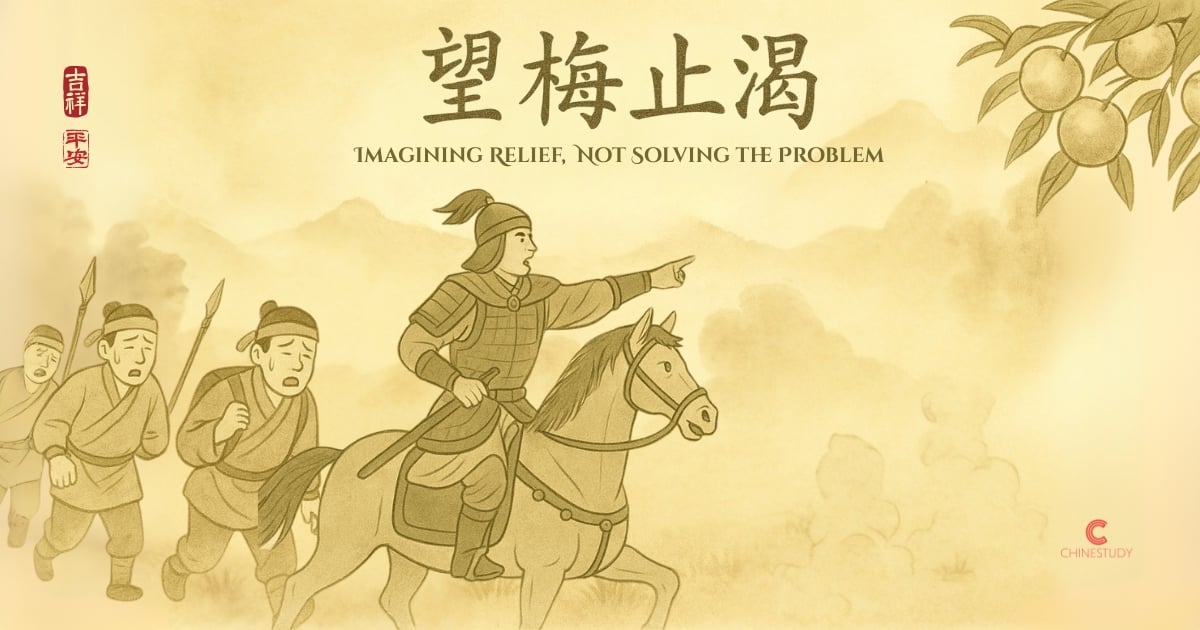
🫐 望梅止渴 wàng méi zhǐ kě – Imagining Relief, Not Solving the Problem
Discover the story of 望梅止渴, a Chinese idiom about comforting yourself with imagination instead of taking real action. Learn its meaning, origin, examples, and memory tips.
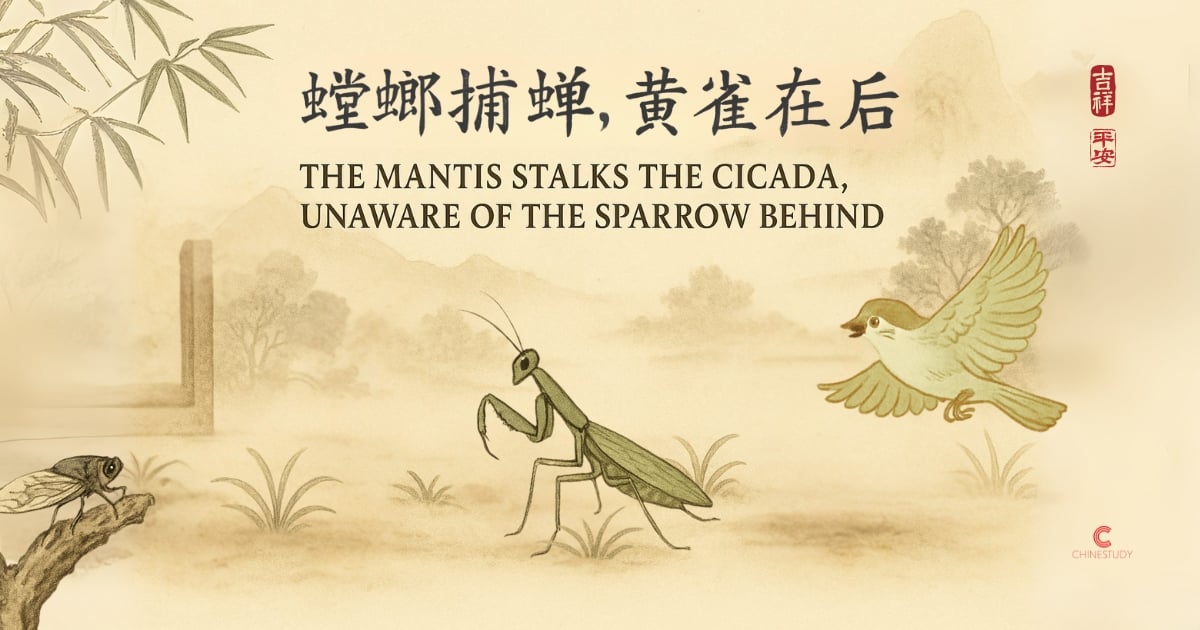
🪲 螳螂捕蝉,黄雀在后 táng láng bǔ chán, huáng què zài hòu – Focused on Gain, Blind to Danger
Learn the powerful Chinese idiom 螳螂捕蝉,黄雀在后. Discover the story of the mantis, the cicada, and the hidden danger. Includes examples, usage tips, and a visual memory trick.
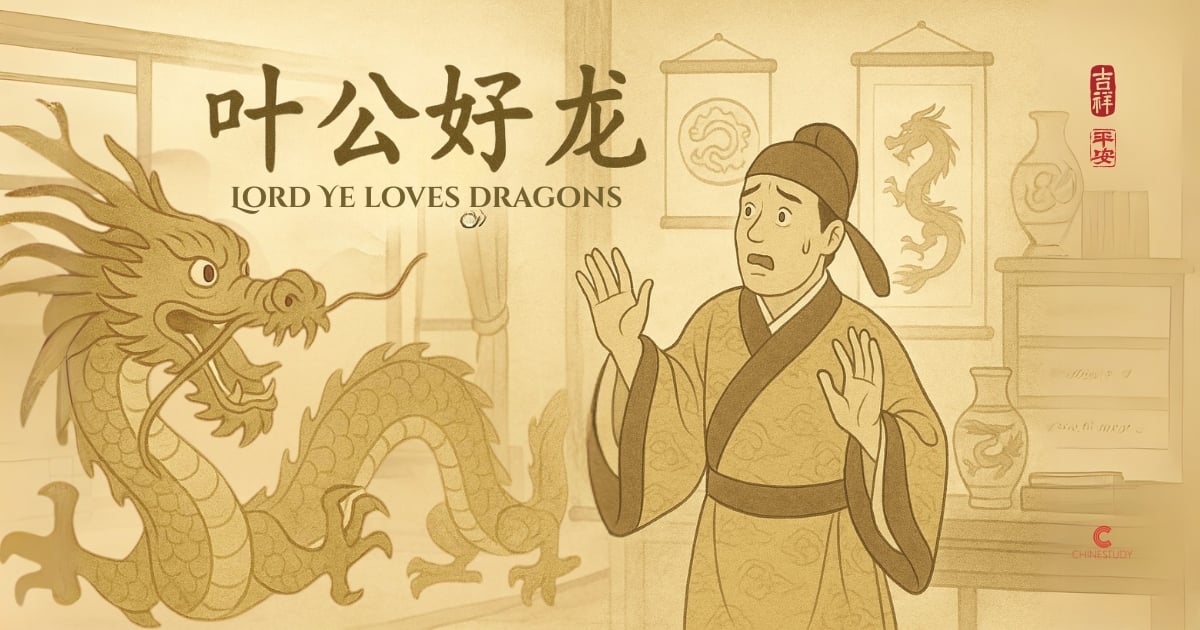
🐲 叶公好龙 yè gōng hào lóng – Loving the Idea, Fearing the Reality
Discover the story of 叶公好龙, a Chinese idiom about people who pretend to love something but avoid it when it gets real. Learn the story, meaning, and how to use it.
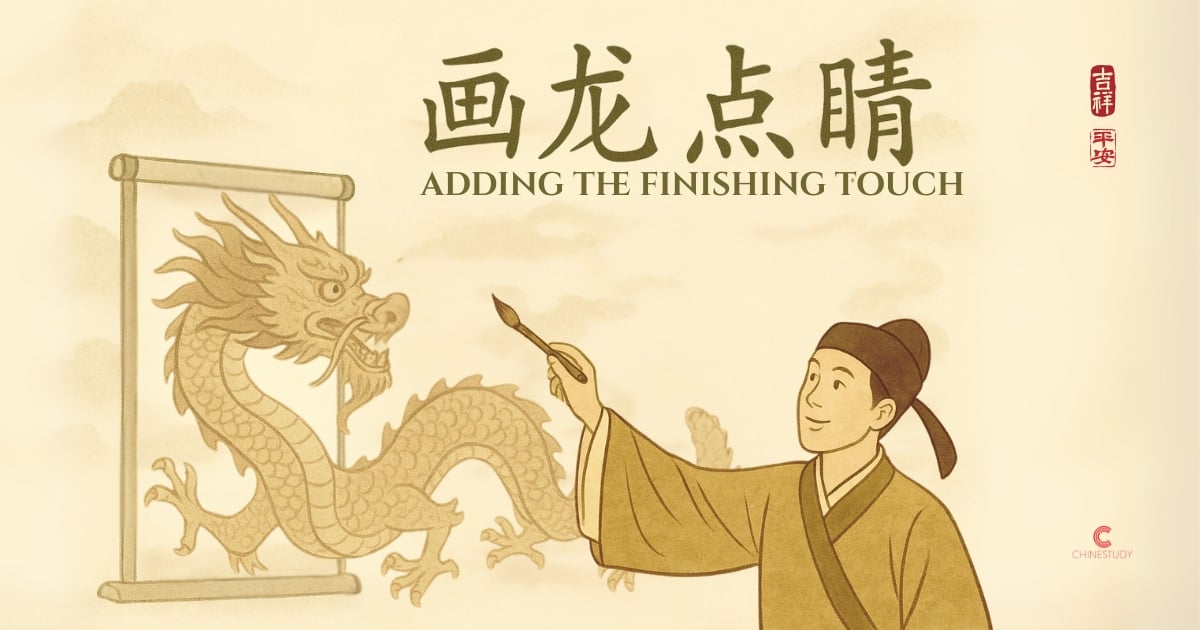
🐉 画龙点睛 huà lóng diǎn jīng – The Finishing Touch That Brings It to Life
Discover the story behind 画龙点睛, a Chinese idiom about adding the perfect final detail. Learn how a single touch can turn something good into something unforgettable.
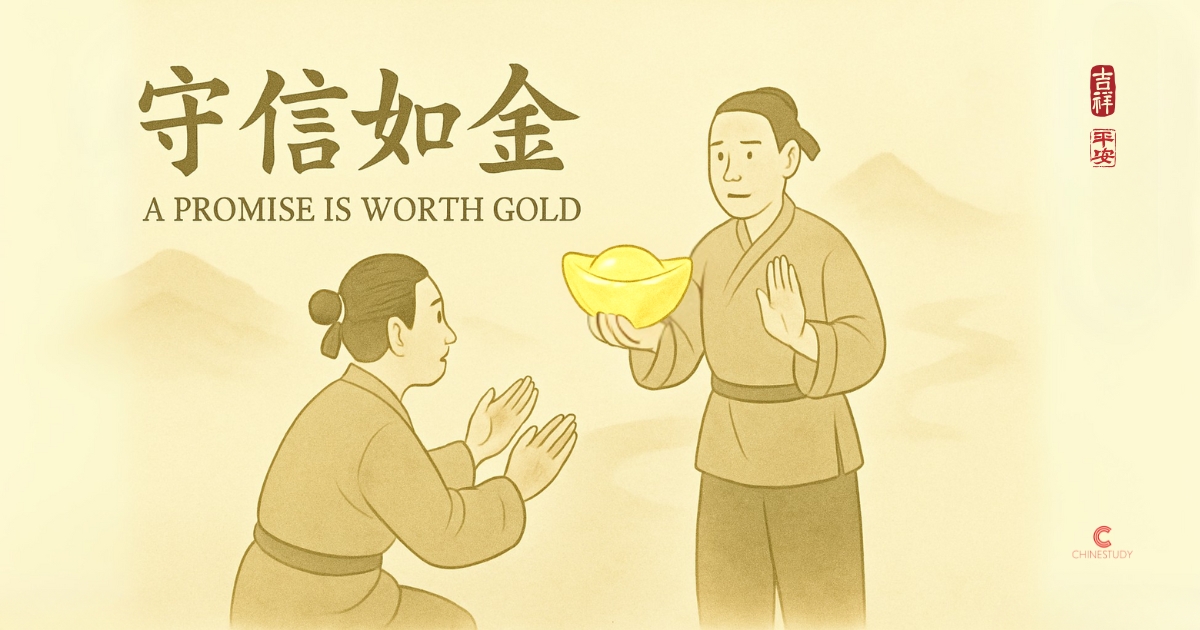
💛 守信如金 shǒu xìn rú jīn – A Promise Is Worth Gold
Discover the meaning behind 守信如金, a Chinese idiom about the value of trust. Learn how keeping your word is like holding gold—with real-life examples and cultural insight.
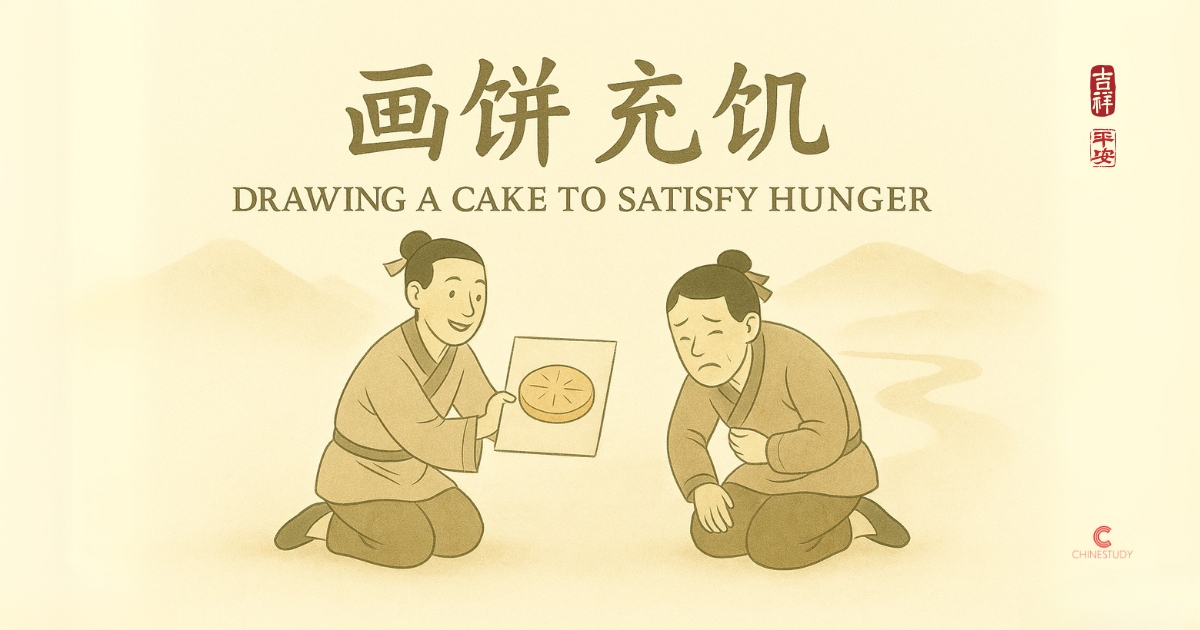
🥮 画饼充饥 huà bǐng chōng jī – Drawing a Cake to Satisfy Hunger
Discover the story behind 画饼充饥, a Chinese idiom about empty promises and false solutions. Learn its meaning, usage, and how to never fall for “just talk.”
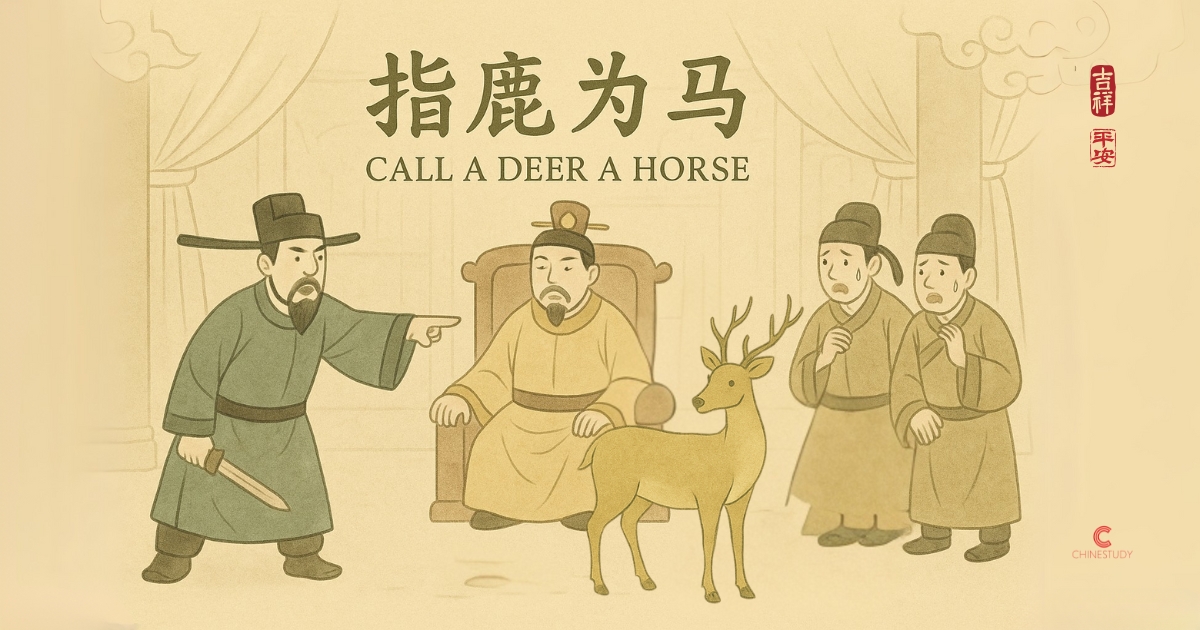
🦌 指鹿为马 zhǐ lù wéi mǎ – When Power Twists the Truth
Discover the shocking story behind 指鹿为马, a Chinese idiom about twisting the truth for power. Includes examples, usage tips, and a visual memory trick.

🛶 刻舟求剑 kè zhōu qiú jiàn – Marking the Boat to Find the Sword
Learn the idiom 刻舟求剑, a humorous Chinese story about a man who tries to recover a sword using an outdated method. Includes story, usage, examples, and a memory tip.
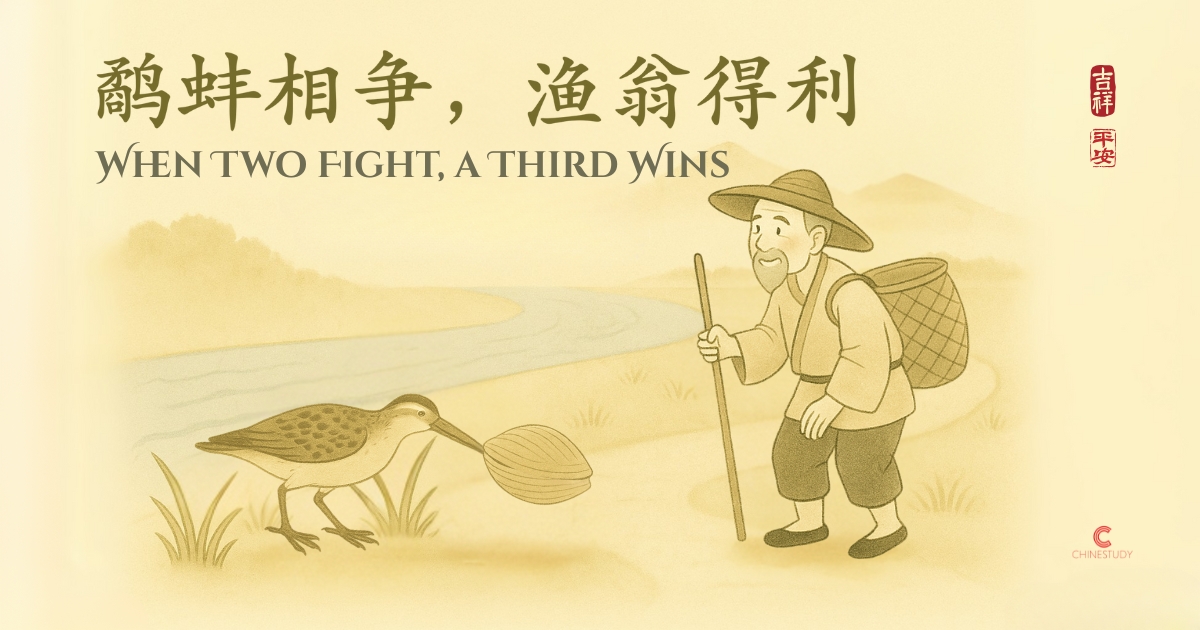
🎣 鹬蚌相争,渔翁得利 yù bàng xiāng zhēng, yú wēng dé lì – When Two Fight, a Third Wins
Learn the Chinese idiom 鹬蚌相争,渔翁得利 — a story about conflict and unexpected winners. Includes origin, usage, real examples, and a memory tip.
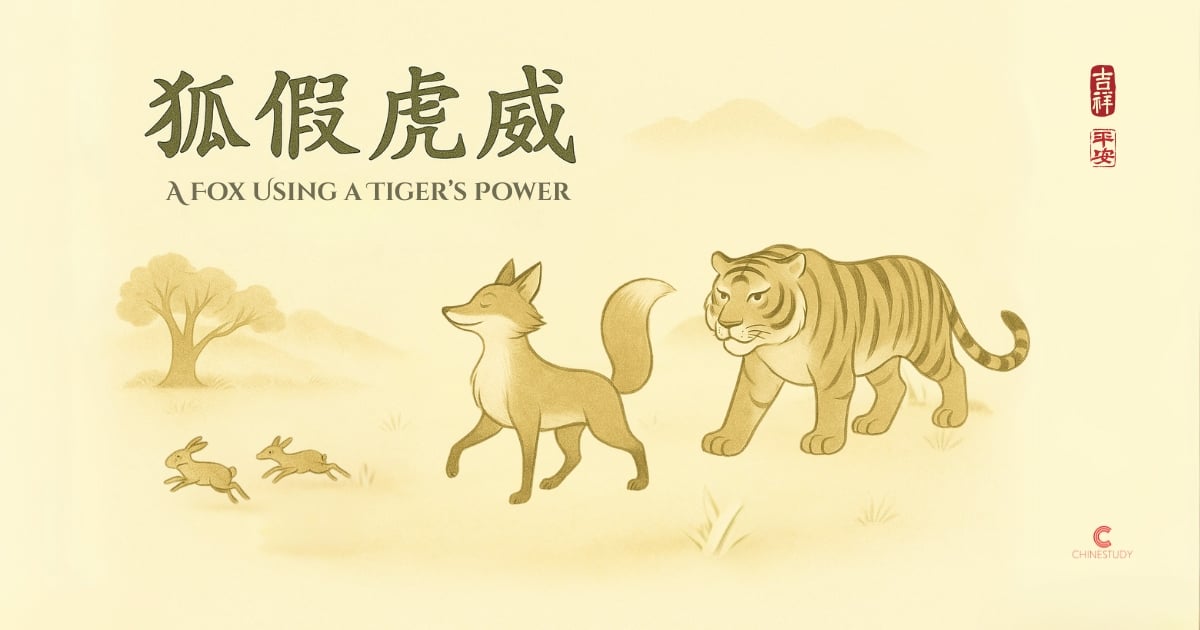
🦊 狐假虎威 hú jiǎ hǔ wēi – A Fox Using a Tiger’s Power
Learn the meaning of 狐假虎威 — a Chinese idiom about using someone else’s power to appear strong. Includes the story, usage tips, examples, and practice.
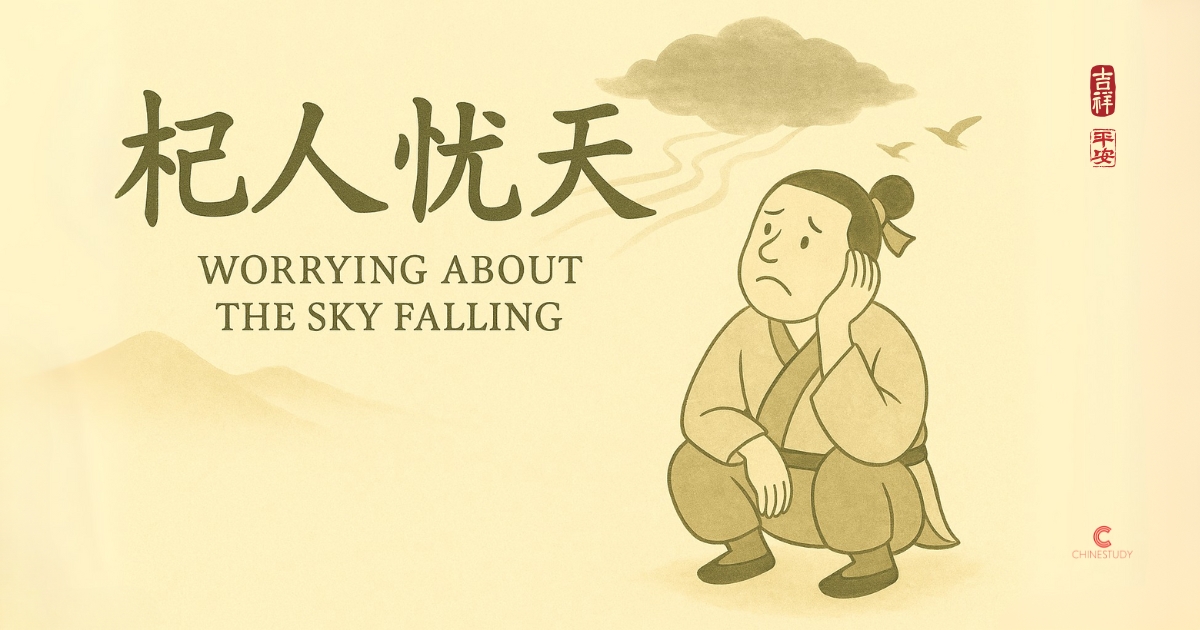
🌌 杞人忧天 qǐ rén yōu tiān – Worrying About the Sky Falling
Learn the meaning of 杞人忧天 — a humorous Chinese idiom about worrying for no reason. Includes the story, usage tips, examples, and a fun practice.
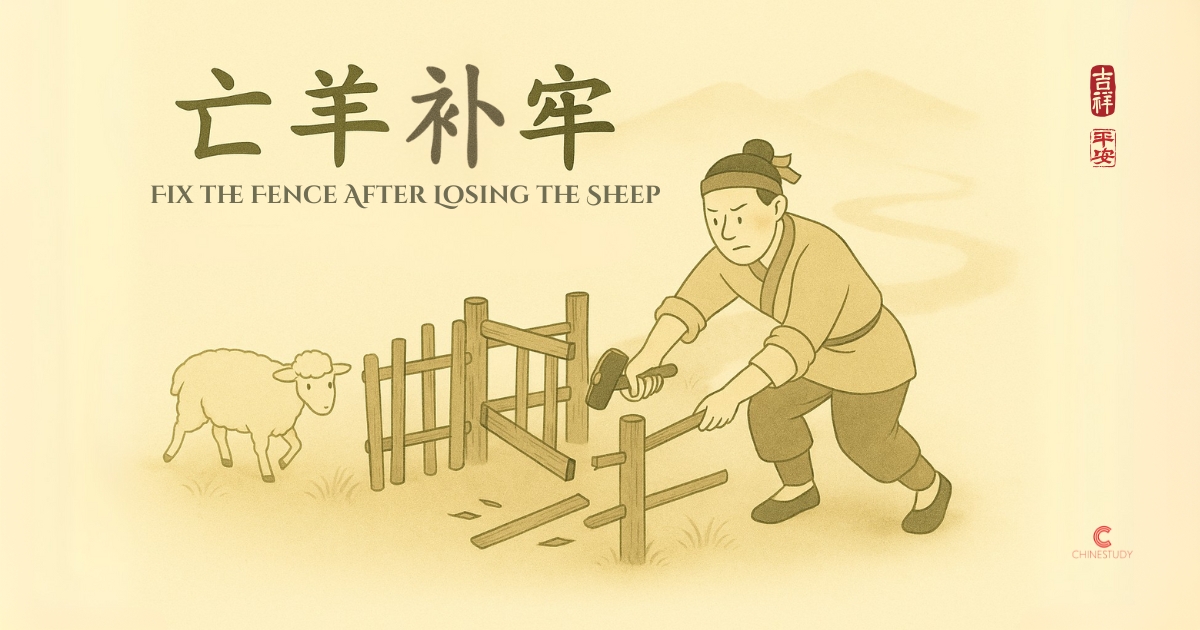
🐑 亡羊补牢 wáng yáng bǔ láo – Fix the Fence After Losing the Sheep
Learn the meaning of 亡羊补牢 — a Chinese idiom that teaches us it’s never too late to fix a mistake. Includes the story, examples, and a practice sentence.
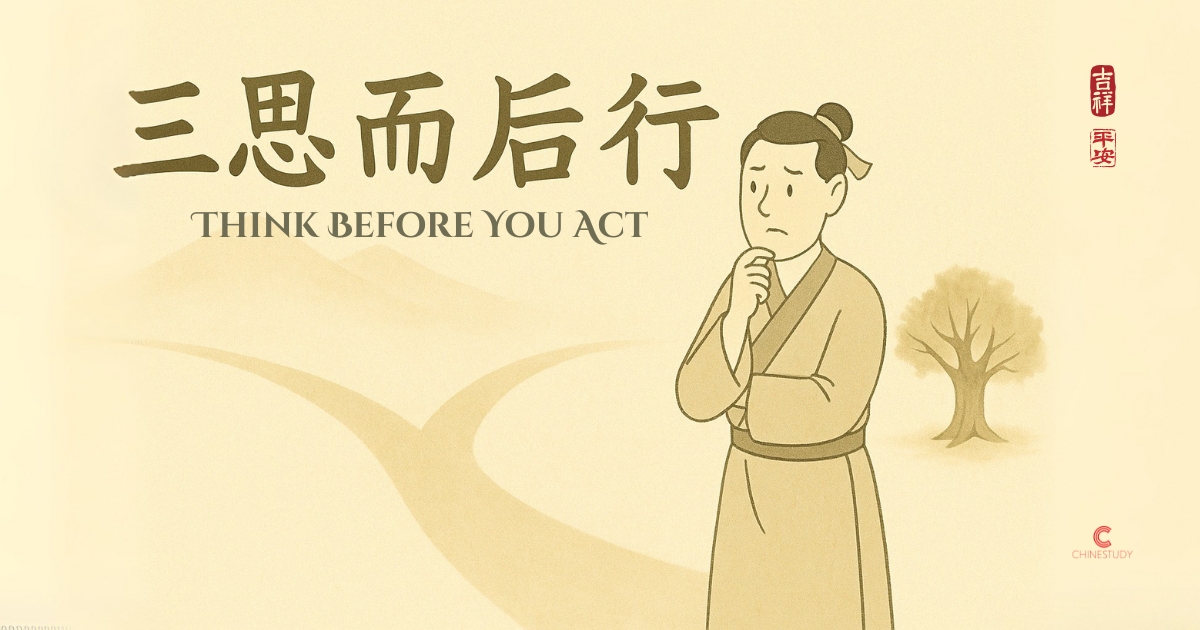
🧠 三思而后行 sān sī ér hòu xíng – Think Before You Act
Discover the meaning of 三思而后行 — a wise Chinese idiom about thinking carefully before making a decision. Includes story, examples, and practice.
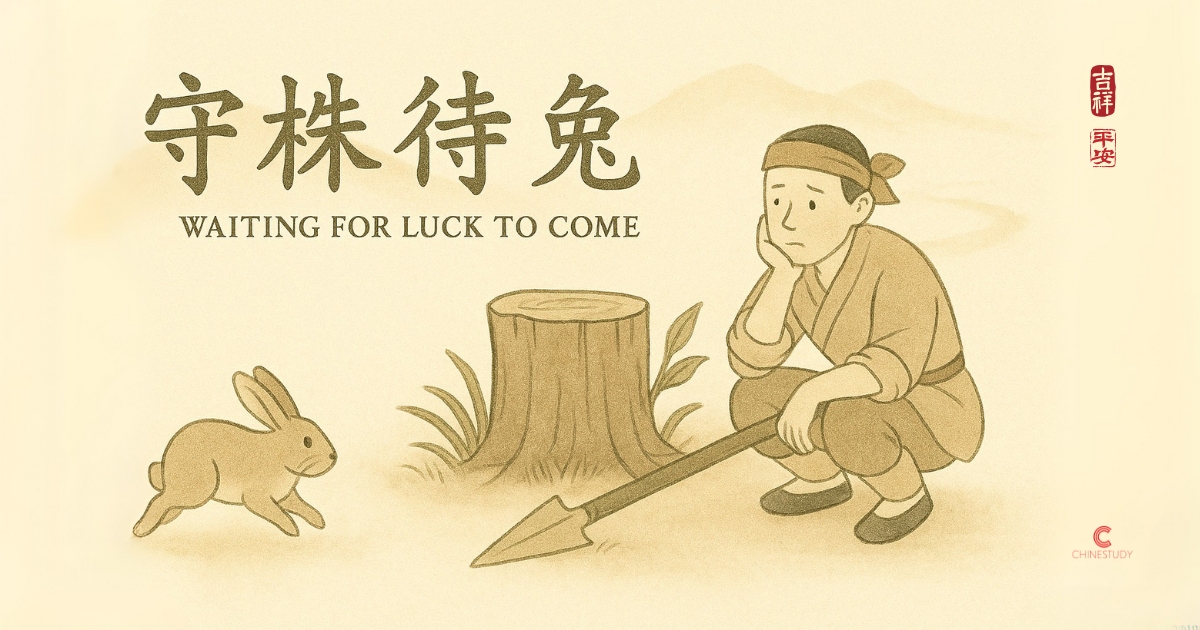
🐰 守株待兔 shǒu zhū dài tù – Waiting for Luck to Come
Discover the story of 守株待兔 — a Chinese idiom about waiting for luck without effort. Learn how to use it with real-life examples and practice.
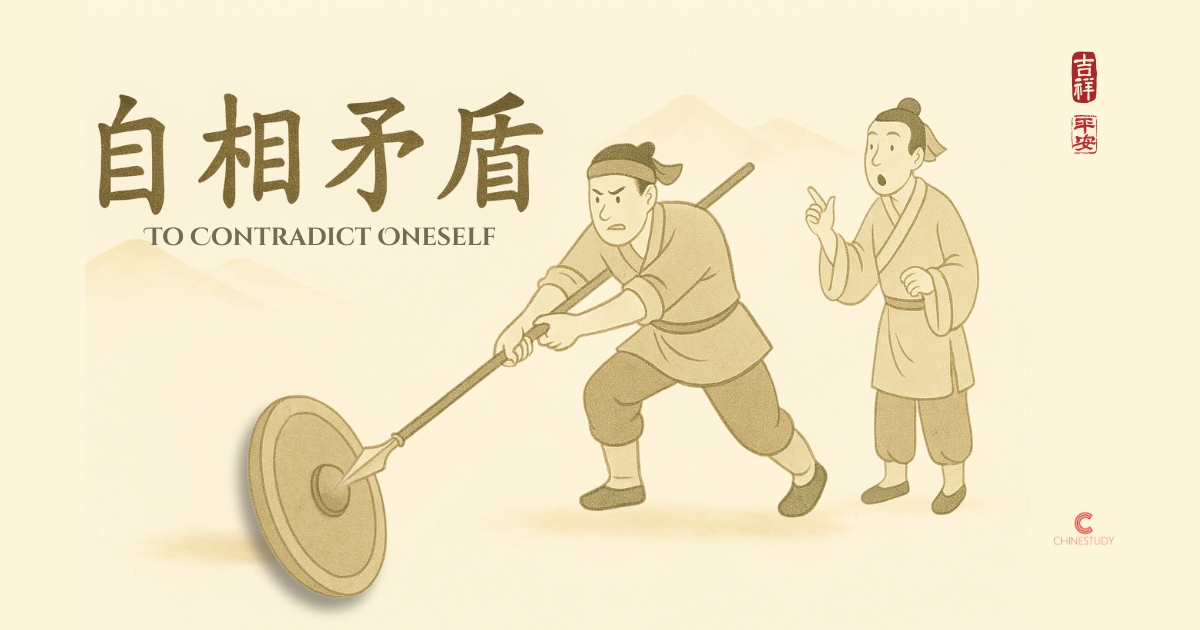
🛡️ 自相矛盾 zì xiāng máo dùn – To Contradict Oneself
Discover the story and meaning of 自相矛盾 — a classic Chinese idiom about contradictions. Learn how to use it with examples and a simple practice challenge.
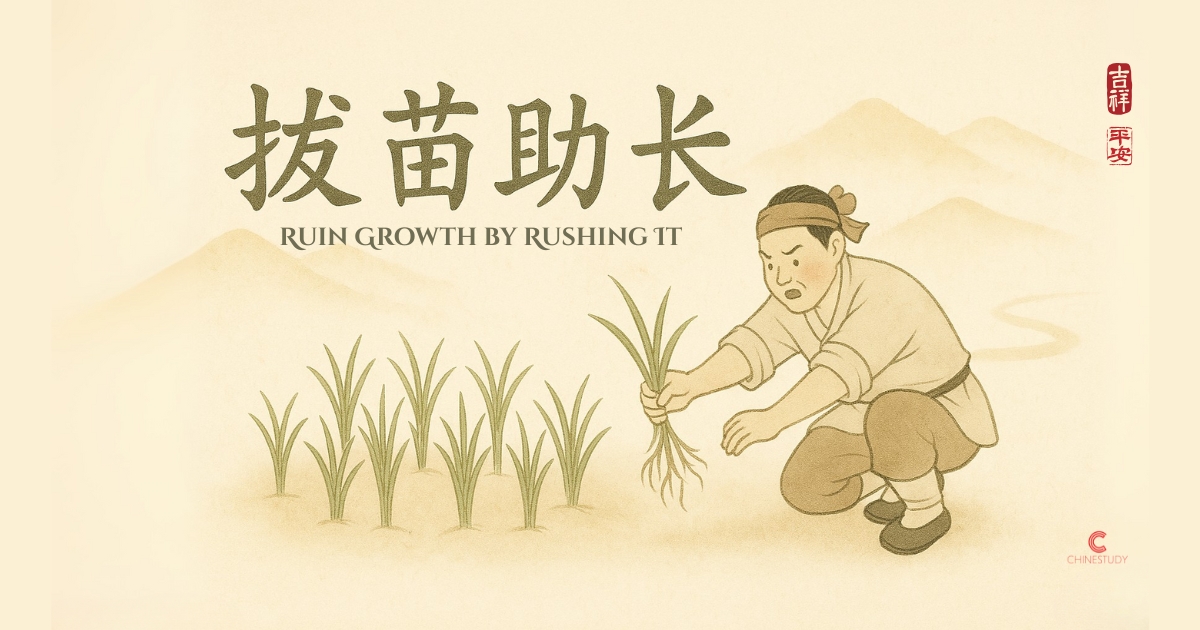
🌱 拔苗助长 bá miáo zhù zhǎng – Ruin Growth by Rushing It
Discover the meaning and story of 拔苗助长 — a Chinese idiom that warns against rushing progress. Includes real examples and a practice challenge!

😅 我吃了面包,和喝了牛奶?Wait… That’s Wrong?!
Said “我吃了面包,和喝了牛奶”?Sounds natural in English, but it’s a typical Chinese mistake! Learn how to connect actions correctly using 也 or 还, with examples and fun practice.